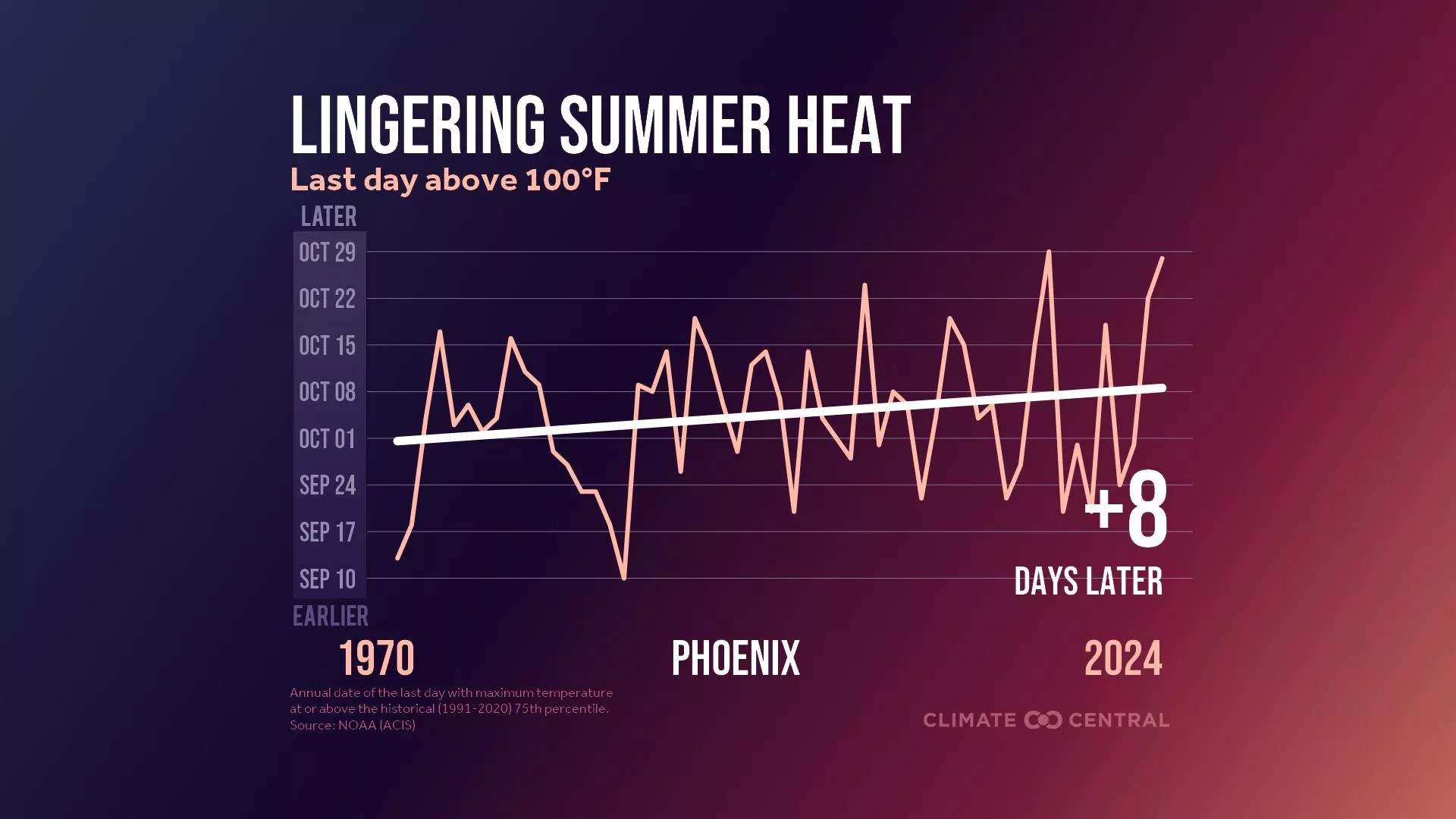Rawpixel.com/CC0 1.0

Audio By Carbonatix
The end of summer is a bit of an illusion in the Valley of the Sun. While its end is typically signified by the Fall Equinox in much of the United States, warmer temperatures last well into October in Phoenix.
But a new study from nonprofit Climate Central, using data from the National Oceanic and Atmospheric Administration, shows that compared to 1970, summer heat is lasting longer in Phoenix and across much of the country.
To be more precise, 227 of 246 major U.S. cities analyzed are seeing longer summer weather for an average of 10 more days than in 1970. In addition, the study found that for about 20% of cities, the length of extended summers is at least two weeks longer.
Phoenix, where summer has always lingered compared to the rest of the nation, is not in that extreme cohort. In Phoenix, the average length of summer temperatures is only eight days longer than in 1970. Still, practically speaking, that comes with impacts.
“Lingering summer heat can extend heat-related health risks and seasonal allergies, keep air conditioners running longer, lengthen mosquito seasons, and prolong wildfire seasons and smoke exposure,” it reads.

Climate Central
To calculate the longer lengths of summer temperatures, the analysts calculated the last day with highs topping the 75th percentile of temperatures from 1991 to 2020 and compared that to when temperatures were below the relative threshold in 1970.
Extended summer heat is actually relatively longer in several of Arizona’s other cities, most of which are located in the desert. In Tucson, summer temperatures persisted 24 days longer in 2024 than in 1970. That figure was 14 days for Prescott and 13 for Yuma.
“It’s not the only factor, but Arizona has been in a long-term drought since 1994, and a drier summer can easily set up a hotter summer,” Dr. Erianna Saffell, a climatologist and the director of the Urban Climate Research Center at Arizona State University, told New Times via email. “Night temperatures have also increased in summer, and the urban heat island largely contributes to the warmer night temperatures. The record-breaking heat wave last September to October across the Southwest was caused by an exceptionally persistent ridge of high pressure.”
The report also mentioned that climate change – driven by heat-trapping pollution from burning coal, oil and gas – has fueled the extended summer heat and also made summers warmer. Indeed, 2025 was one of the hottest summers on record in Phoenix, though not quite reaching the temperatures of the previous two years.